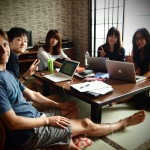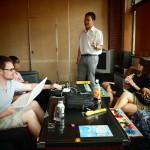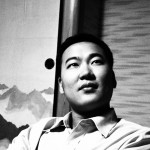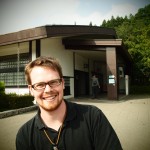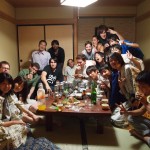Author Archives: jewels
Labor, Environment & Development
Executive Summary:
An FTA between two highly developed trading partners sharing common values would
open markets to new goods and services, promote competition and innovation, and
inevitably increase the flows of people. Canada and Japan stand in unity on many
issues around labour standards and environmental commitments. They also continue to work together on bilateral and multilateral development issues of human rights, security and nuclear proliferation.
Both Canada and Japan have commitments to the International Labour Organization
(ILO), but both are still in need of ratifying a number of labour standards, which are
discussed within this document. Canada needs to better address labour standards,
while Japan needs to better address gender wage gaps and equal access to employment.
WTO/GATT trade rules respect countries’ rights to adopt appropriate environmental
policies, according to their respective circumstances, to protect their own environment.
This basic principle should continue to be upheld firmly (see references). At the same
time, it should be borne in mind that protectionism in the name of environmental
protection often prevents efficient allocation of resources and destroys the mutual trust
among countries, which is necessary for stable functioning of the international trading
system, consequently damaging the prospect of attaining sustainable development in
the world.
Japan and Canada have been cooperating in many fields other than economic
liberalization. The Japan-‐‑Canada/Canada Japan Inter-‐‑Parliamentary Friendship Group meets every year. Talks between the two governments include peace and security, housing, fisheries, finance, and telecommunications. Grassroots-‐‑level exchanges are also active through such programs as the JET program and the Working Holiday programmes.
Lost in translation, but found again
The last of us (UBC students) arrived at the Palace Hotel in Tachikawa, Tokyo shortly after midnight on Sunday August 14th (technically Monday). That last student was me, and while my plane landed shortly after 9pm, I didn’t realize the length of time it would actually take to get from Narita Airport to the west side of Tokyo. My journey began in Vancouver 20 hours earlier. In fact, most of our journeys began in YVR, with stopovers in multiple countries before ending up in Tokyo. Some of us decided to stop in China, Korea, Mongolia, while others decided to arrive in Japan a week or two early to see family/friends and travel.
The connections many of us have with Asia is certainly not limited to Japan, but this year’s experiential learning initiative brings us together because of our fantastic colleagues and connections here. To take you back about five months when the tragic earthquake hit Japan, there was a moment when we weren’t sure if our friends and colleagues in Japan were in any state to host us this summer, understandably. So we held our breath for about a month as news started to slowly trickle in that the show must go on. We were elated, and so grateful to the bravery and resiliency of our Japanese counterparts.
In the months following, our friends in Japan never wavered replying to our steady stream of e-mails and queries. When we requested they round up a group of 10 Japanese students who were equally as dedicated to their studies and looking forward to an intercultural learning experience, they certainly delivered. Last night, we met our Japanese counterparts, and they appear to be a group of incredibly smart, passionate and charismatic students. I worried that my lack of Japanese would pose challenges in the negotiations but it appears I may not have to worry about that since most of their English is impeccable. However, note to the makers of Play Station, I would love to receive a free PSP so I can listen to my Japanese Lessons again. I lost it in the mad dash between connecting flights in Korea to Japan 🙁
Each of us have our own unique stories of how and why they joined this experiential learning initiative, including challenges they encountered throughout the course. However, most of us can probably agree that this will be one of the most memorable and unique courses they will ever take. More stories to come to highlight our adventures.
Follow me on twitter for shorter updates! @ecoseoul
A Holistic Approach to Teaching and Learning
Have you ever felt the things you learned in school weren’t actually all that applicable? Sure, it’s for knowledge’s sake itself. But after learning about a plethora of policy theories for the umpteenth time, I am craving a lesson on how these policies might actually play out. My frustrations with classes started years ago when I noticed a disconnect between what I was learning in the classroom and “the real world”. What I mean by this is that I wasn’t being given any indication of what I could do with this knowledge once I graduated. Fast forward to graduate school at UBC, where the first week of classes I posed the question to our MAAPPS advisor, “Can we take the course outside of the classroom…maybe to Japan?” The answer was “why not?” So thereout began our journey to take the learning outside of the classroom and into the actual policy realm.
The last ten months have been spent developing the course, and what a task that has been! A strong, motivated team of 10 MAAPPS students have been holding regular meetings to delegate tasks ranging from proposal-writing, fundraising, curriculum development, logistics planning to securing meetings with diplomats and foreign officials from Canada and Japan. This has probably been some of the most challenging months of our lives, however perhaps some of the most rewarding too.
*A word to professors who want to whip their students in shape for a life of academia: make them plan a course.
While the course development work is nearly over, the actual simulation is about to begin. Stay tuned to hear more about our daily rigorous activities, site visits, and our meetings with embassy officials and our Japanese counterparts.
